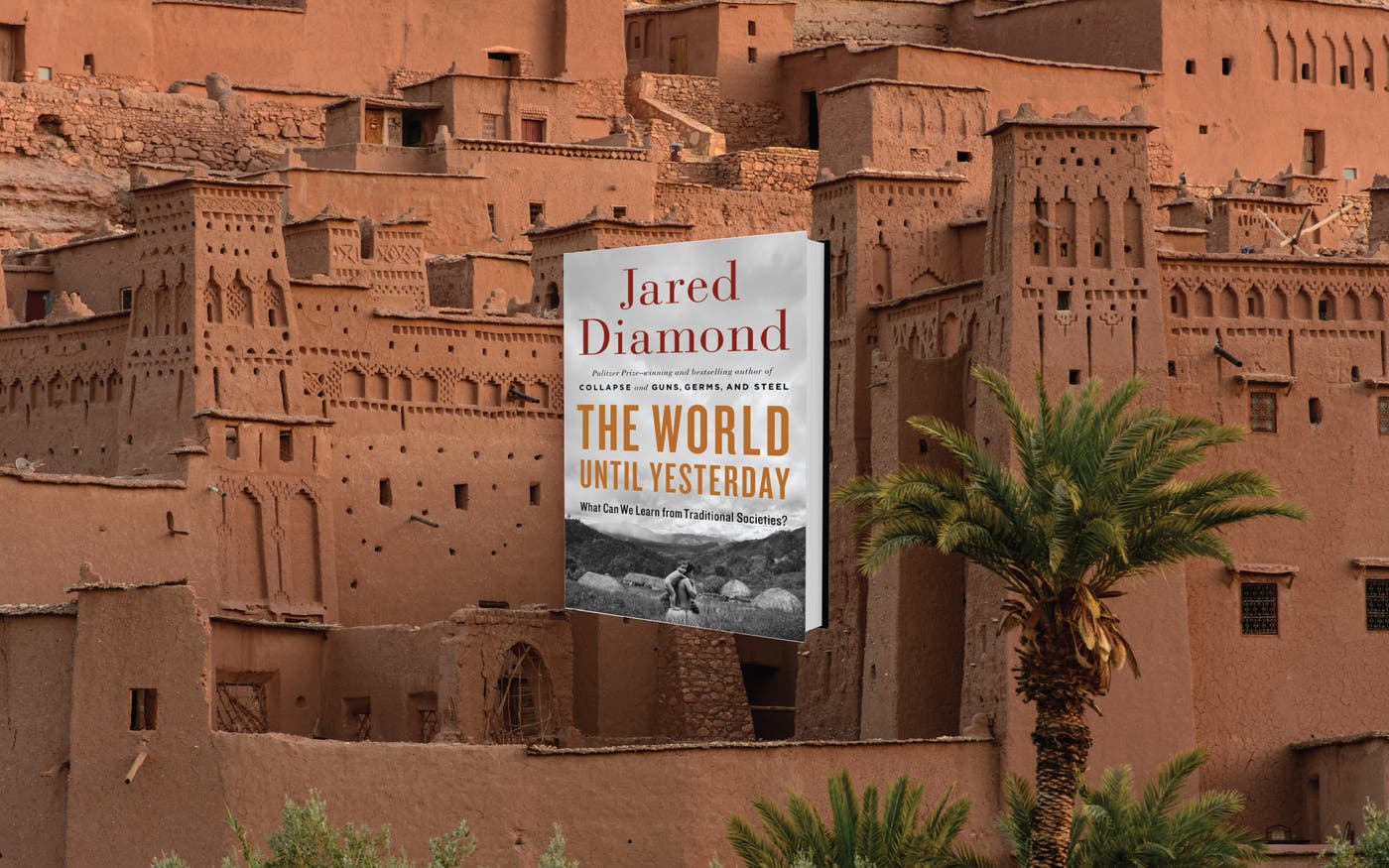
Thanks for Sharing
Read Jared Diamond with me, part 2
Thanks to everyone who shared their thoughts on Jared Diamond’s latest book.

Last week I mentioned I’d be reviewing Jared Diamond’s latest book and invited you to share your thoughts on the book. I wasn’t sure what the response would be. It wasn’t exactly light beach reading, and ten days isn’t much time to find and finish a 460-page book. But I was pleased by how many people responded. Thanks to everyone who weighed in.
A number of commenters hadn’t heard of Diamond before. But I was encouraged by this post from Addison Staples: “I was actually lucky enough as a teenager to be required to read Guns, Germs, and Steel as preparatory reading for AP World History. I was blown away, probably the only book I was ever forced to read in school that absolutely engaged and enlightened me.” That’s great. Every student deserves to be inspired like that.
As for the new book, Andrea wrote that it “is a very good read, in my opinion, but nothing more. It lacks the great enlightenment of the other books” that Diamond has written. I had a similar reaction.
Diamond starts with the premise that human beings were hunter-gatherers for millions of years, and only settled down when we began farming about 10,000 years ago. So most of our genetic selection has been done in a hunter-gatherer environment. He argues that we can learn a lot by studying hunter-gatherer societies in places like New Guinea, where he has spent much of his career. (He uses the term New Guinea to refer to the island that is divided between Indonesia and Papua New Guinea.)
He describes several areas in particular, like raising children, dealing with the elderly, and eating well. He doesn’t romanticize these societies, as I thought he might, or make some grand pronouncement that they all do these things better than we do. He just wants to find the best practices and share them.
Unfortunately, I didn’t find much deep wisdom in the lessons that Diamond documents. But I found the book fascinating anyway.
In part that’s because Diamond has such good anecdotes. There’s one involving a New Guinean nomad who finds a small tree coming out of the ground and becomes convinced it’s a sign of danger. As I read the story, I was sure something bad was about to happen. Diamond eventually concludes that the man was right, but not for the reasons I expected.
At a broader level, The World Until Yesterday made me think about how we have had to overcome some deeply ingrained behaviors in order to develop a modern, interconnected society. As Diamond explains, in a hunter-gatherer society, you trust people in your own group because you know for the most part they share your interests. But when you encounter strangers, you have to assume they’re dangerous. You have a strong incentive to do this: If you don’t, and you turn out to be wrong, they could end up killing you or stealing your food.
Things are different in a modern society. You probably passed by a lot of strangers today without having to figure out whether they might try to kill you or take your lunch. That is a very primal fear we have overcome in order to live in large cities.
Consider how important this has been for global trade and international travel. How many strangers have to do business with each other every day to make the global economy work? Although globalization has been driven by inventions like the jet engine and the standardized shipping container, it wouldn’t be happening unless we were also able to overcome a natural suspicion of strangers. It is another reminder of humans’ amazing ability to adapt.
How did this shift happen? Diamond writes a bit about how on a local level (like for tribes in New Guinea) it’s driven by the need to share scarce resources, such as food. But it’s not really his main point. One book that gets deeper into these questions is The Rational Optimist: How Prosperity Evolves, by Matt Ridley. Ridley focuses on trade more broadly and what it took to overcome these very basic barriers to working with strangers. I’d recommend it to anyone who is interested in this area.
I did appreciate a few of the other observations in Diamond’s book. He is convincing in suggesting that we reconsider how much we isolate the elderly. It is a waste to have people with experience and the free time to share it, and lots of young people who would benefit from it, but no way to connect them. This is an area where I think communications technology could still make a big difference.
In short, if you’re only going to read one Jared Diamond book, make it Guns, Germs, and Steel. But if you have a particular interest in what life is like for hunter-gatherers, The World Until Tomorrow is a good choice.
Finally, a number of commenters suggested similar books to Diamond’s. Nobuo Ikeda mentioned The Better Angels of Our Nature, which is one of my favorite books ever and one I think everyone should read. You can find my review here. Scott and others recommended Why Nations Fail, which I disagreed with pretty strongly and reviewed here.
Thanks again to everyone who participated in this experiment. I’ll be moving on to some of the other titles on my summer reading list and will post more reviews when I can.


